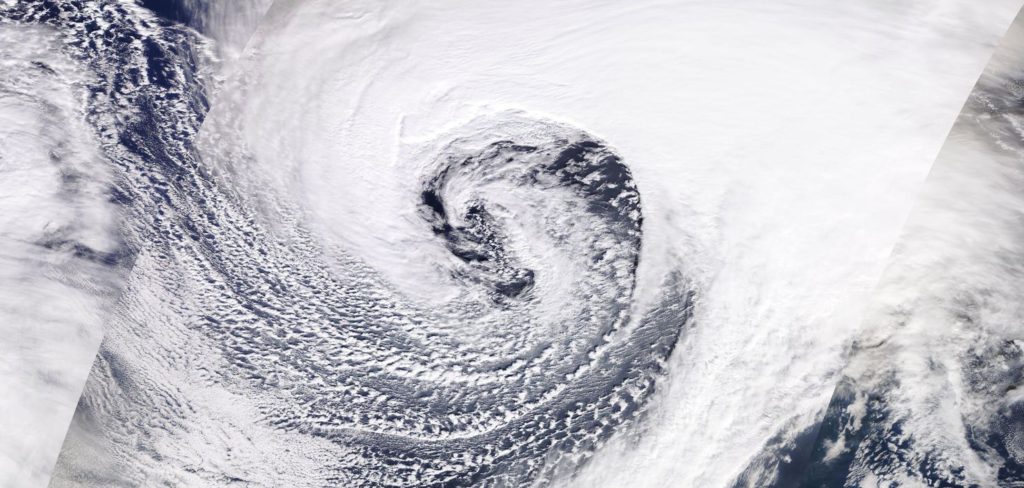
A strong storm with an origin in the southern United States underwent explosive cyclogenesis (a ‘bomb cyclone’) in the North Atlantic over the weekend and slammed into Ireland and the United Kingdom, bringing strong winds, heavy rain and disruption through the region.
Many European meteorological agencies give names to all significant systems. In this case, the United Kingdom, Ireland and the Netherlands form a cooperative that ascribes names to storms, much like the National Hurricane Center does to hurricanes. This is a tried and true method of weather agencies both to document and streamline the notifications of the strongest storms (and a lot of that is lost when networks give their own names to snow storms).
But the politics and naming conventions aside, Dennis was one of the strongest storms to ever move across the north Atlantic, thanks to a strong jet structure that fostered the rapid development. Usually, and once again this was the case, when there is such a rapid development, it is accompanied by very gusty winds.
With Dennis, however, the most significant impact was with the water. Churning seas claimed the lives of a couple of British citizens, while flood waters and heavy rains lead to the death of another man in Wales, and a woman was swept away by floodwaters in Worcestershire. There have also been stories of ships (though abandoned) washing ashore in Ireland thanks to the churning seas, and flooding as far away as Sweden as Dennis made his way towards the Baltic.
The storm has mostly shifted out of Europe, though a cold front remains particularly active in Russia and Belarus, though it tails as far west as France. A few snowflakes will fall in Scotland and northern England today, while runoff will continue to cause rivers to rise on Great Britain for at least another day or so.
To continue to follow Dennis and his lingering impacts, as well as learning more about individual tales and specific happenstances brought about by this massive storm, BBC News continues to have live updates about his wrath.

Comment (1)